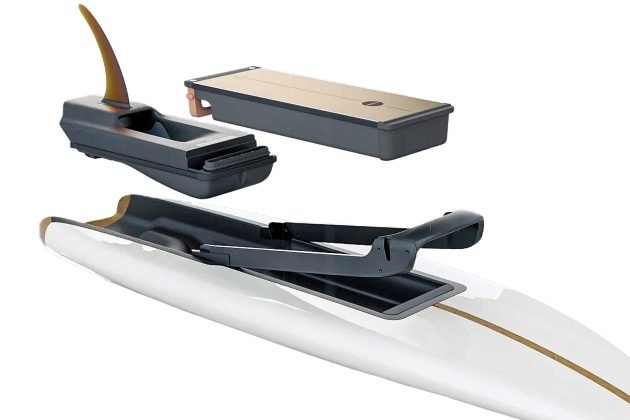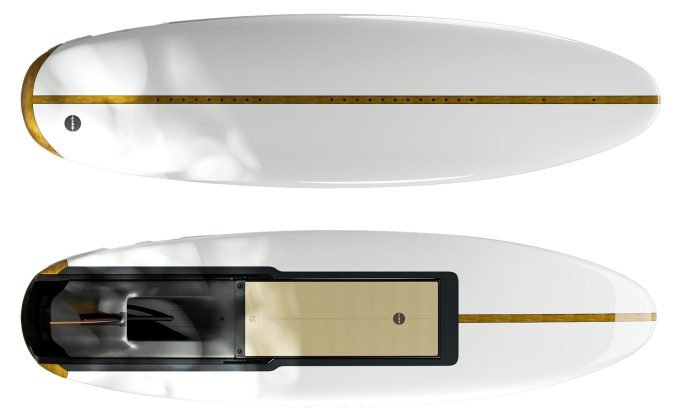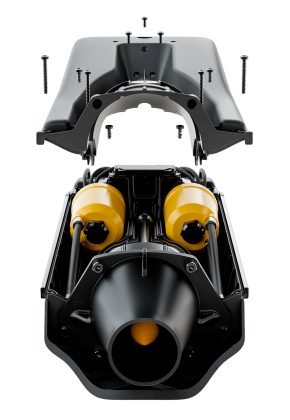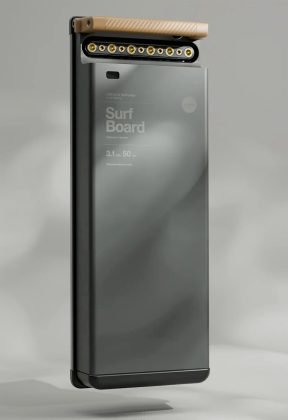The electric surfboard market has become increasingly competitive, pushing manufacturers to innovate and differentiate. The Canvas surfboard, introduced by Swedish-American company Lind, offers a unique modular design coupled with impressive performance, making it stand out in this niche.
Founded by Anders Dellson, Mattias Soderhielm, and Alexander Lind, Lind brings expertise from previous ventures, including Alexander Lind’s experience with the now-defunct Radinn jet surfboard. The Canvas offers buyers a choice between shortboard (72 inches/182.9 cm) and midlength (75 inches/190.5 cm) configurations. Both versions feature an EPS foam core encased in epoxy resin, complemented by an oak tail block and a center strip for added durability.
What sets the Canvas apart is its modularity. The board’s lithium battery and electric jet propulsion system are detachable, allowing for easy transport and storage. Assembling the board for use is quick, taking just 10 seconds to plug in the components. When disassembled, the 7-kg (15-lb) board can be carried under one arm, while the 17-kg (37-lb) battery and 10-kg (22-lb) jet drive fit into a provided backpack. The total weight of all components is 34 kg (74 lb).
Once in the water, the Canvas is controlled via a handheld wireless remote. The 20-kW (27-hp) jet drive propels the board to speeds of up to 60 km/h (37 mph). A fully charged 3.1-kWh battery delivers up to 45 minutes of runtime, though this depends on usage intensity. The battery is located on the underside of the board and features an aluminum cooling plate that dissipates heat into the surrounding water. For added safety, the jet drive only operates when the board is properly positioned and the impeller is fully submerged.
The Canvas comes with a premium price tag starting at $24,950. The package includes the board, battery, jet drive, remote, charger, fins, and a board bag. Reservations are open now for a $2,500 deposit, with deliveries expected to begin in April.
Source: Lind









